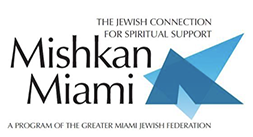
Circumspection of Topic
Ministering to the Elderly Conference 2024
Ministering to the Elderly Conference 2024
Transforming Intergenerational Trauma Into Healing
What is trauma? Is it environmental? Is it genetic? Or is it both? In recent decades, research has demonstrated that traumas and other dispositions can actually be transmitted from generation to generation, and are studied in a field known as epigenetics. Thus, our responses to various events in our lives are subconsciously influenced by not only the forces that presently surround us, but also the subterranean forces that flow through us from the past.
There is not a human being who has not experienced a traumatic event in their lives. These events can be in the context of our personal and family relationships or they can be the product of great social upheavals, including natural disasters and war. Sometimes, we undergo multiple and overlapping traumas, including the recent pandemic, political upheaval, mass shootings and environmental disasters. In 2020, the filmed and violent murder of George Floyd traumatized a large sector of the African-American communities, triggering memories of the Jim Crow South and slavery. The failure of some sectors of American society to reckon with this racism and suffering only reinforced the trauma experienced by many minorities in this country.
In October 2023, Jews around the world collectively confronted a reality that triggered events reminiscent of the helplessness and victimhood experienced in the Holocaust. The rise of global antisemitism and the refusal to validate the pain of the Jewish community only exacerbated this collective trauma. Especially for a generation that personally experienced the horrors of the Holocaust and has dedicated their lives to ensuring “Never Again,” recent events are particularly triggering. Untreated and unrecognized trauma has the potential to unravel the human personality, leading people down a path of self-destructive tendencies and hurting others in the process. How can we break this cycle?
As people age, they often confront trauma they have long suppressed and denied. Some older adults can be debilitated emotionally and physically, triggered by life experiences of loss in many different forms, such as the loss of a loved one. A lack of purpose, exacerbated by increasing rates of loneliness among various populations, often denies people the very sources of internal agency and resilience needed to overcome these triggers. How can we, as family caregivers, therapists, rabbis, nurses and doctors, help seniors struggling with daily trauma and turn a negative into a positive? What are some of the tools and resources we can share with older adults to help them navigate their everyday lives with more ease?
Up to 90 percent of older adults have experienced at least one traumatic event in their lifetime, such as military combat, the unexpected death of someone close, serious illness or injury to self. Exposure to trauma is associated with posttraumatic stress disorder (PTSD) and several other psychological disorders in older adults. Population-based studies involving older adults in the United States have found that the lifetime prevalence of full PTSD ranges from 2.8 percent to 4.5 percent and that an additional 5.5 percent has partial or subsyndromal PTSD 1. These conditions, which may persist for more than a decade, often co-occur with mood and anxiety disorders, such as substance abuse, major depression and generalized anxiety disorder. In some countries, traumatic experiences related to war in early life are common and may be associated with elevated PTSD symptoms even decades later.
Traumatic experiences and PTSD are also associated with several physical health conditions in older adults. People who have experienced trauma or PTSD have higher rates of cardiovascular diseases and related risk factors (e.g., hypertension, coronary artery disease, hyperlipidemia), as well as other common medical conditions (e.g., osteoarthritis, diabetes).
During the Ministering to the Elderly Conference, Rabbi Tirzah Firestone, PhD, will share wisdom from her years of practice as a therapist and rabbi and how we can turn wounds into wisdom and heal from our pasts. In her book Turning Wounds into Wisdom, she teaches that we carry within us tremendous riches, along with legacies of trauma and heartbreak. The world is calling us to heal our wounds and harvest the best within us. Her book is a call to action to transform our family's trauma legacies. Weaving contemporary neuroscience, psychology and ancient Jewish wisdom and values, this book provides a roadmap for Jews and all people with trauma history who wish to seize the power to change their lives.
The Conference will take place at Miami Jewish Health on May 9, 2024. Miami Jewish Health has an 80-year history of offering comprehensive health services and living facilities and programs, all centered on an innovative care model grounded in empathy.
Objectives
At the conclusion of this keynote presentation, participants will be able to:
1. Define “big T” and “little t” trauma and identify the four hallmarks of trauma residue
2. Distinguish between personal, collective and intergenerational traumas and how the latter two tend to impact individuals
3. Understand the findings of epigenetic research that explain how our ancestors’ extreme life challenges can influence their descendants
4. Understand why practitioners’ own self-care can pave the way to more sustainable care for others
5. Learn and take home three usable practices to restore their physical and emotional energy)
6. List four resourceful ways to manage and navigate trauma
7. Discern the positive legacies we inherit and access the healing influences of wise and well ancestors and teachers
https://www.ncbi.nlm.nih.gov/pmc/articles/PMC3652940/ (National Library of Medicine)







